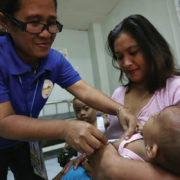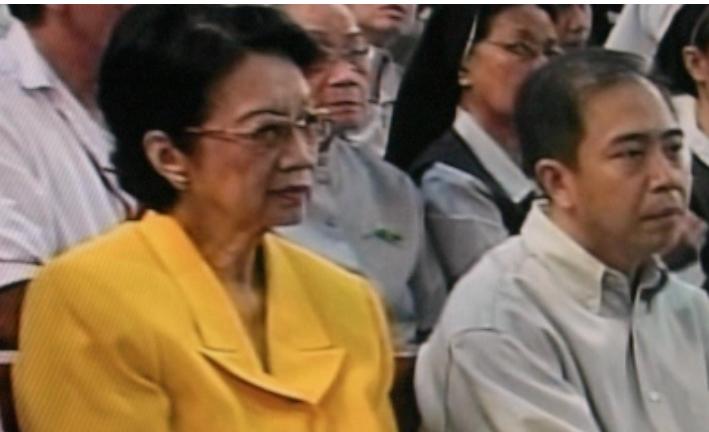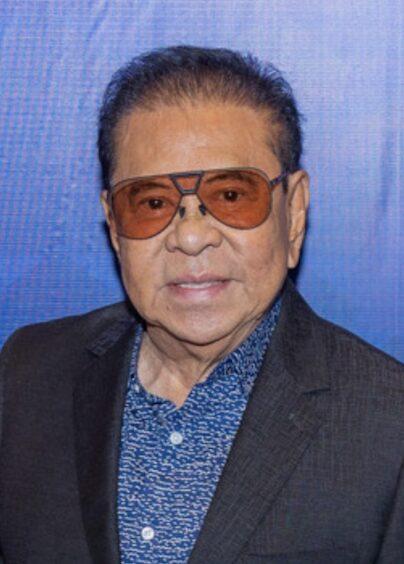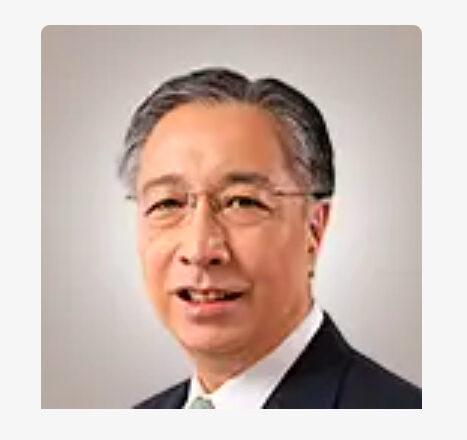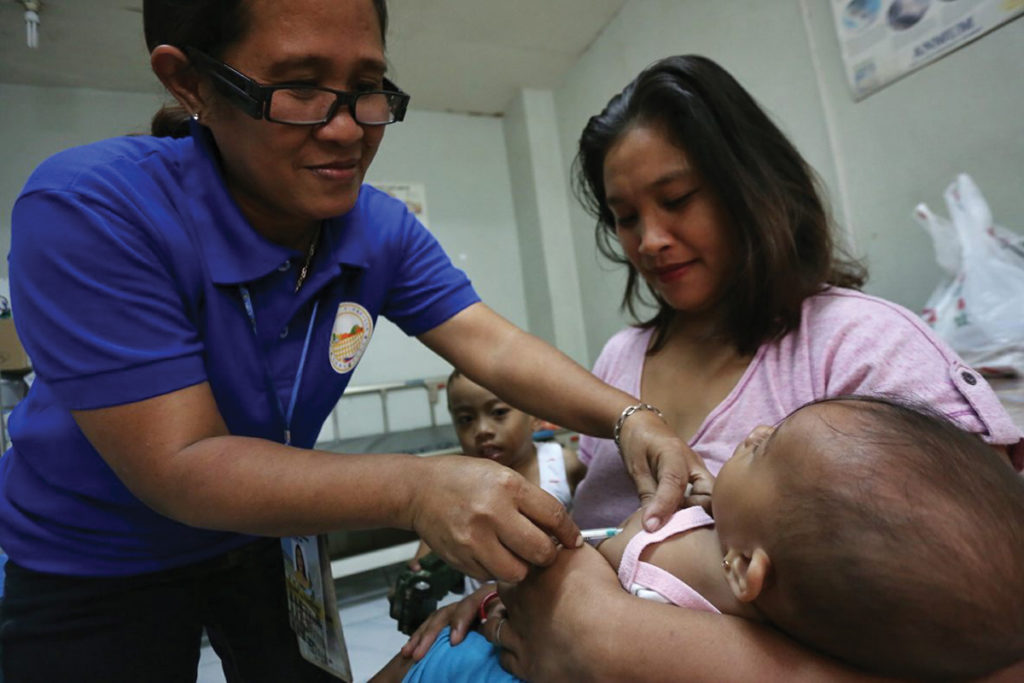
The Philippines Department of Health (DOH) announced that 55 children have died due to the measles outbreak in the National Capital Region (NCR) on Wednesday, February 6.
DOH Secretary Francisco Duque III declared the outbreak of the highly contagious disease due to a 550 percent increase of patients — with a total of 169 cases — from January 1 to 19 as compared to the same period last year with only 20 cases.
“We are declaring an outbreak as cases have increased in the past weeks and to strengthen surveillance of new cases and alert mothers and caregivers to be more vigilant,” the health secretary said as reported by The Philippine Star.
The health department’s Epidemiology Bureau said that the measles-affected individuals are concentrated in the cities of Manila, Caloocan, Marikina, Pasig, Navotas, Parañaque, Taguig, Pasay and Malabon.
San Lazaro Hospital, a referral center for infectious diseases in Manila, has seen the most number of patients with measles. The hospital receives an average of 48 measles cases on a daily basis.
Outbreak expands to nearby regions in Luzon and Visayas
The health secretary said that the department expanded the outbreak to the nearby regions in the entire Luzon, Central and Eastern Visayas due to the “increasing trend” of measles cases in the said areas.
“We are expanding the declaration of the outbreak from Metro Manila to the other regions as cases have increased in the past weeks,” Duque said as reported by Rappler.
The health department recorded 575 cases with nine deaths in CALABARZON (Cavite, Laguna, Batangas, Rizal and Quezon) as compared to 21 cases in 2018. Central Luzon has 192 cases with four deaths as compared to 32 cases in 2018.
Western Visayas has 104 cases and three deaths as compared to 16 cases in 2018, while Central Visayas has 71 cases with one death — a 3,450 percent increase — as compared to just two cases in 2018.
Vaccine scare from Dengvaxia issue
The DOH earlier said that the country’s vaccination coverage rate dropped by 60 percent after the issue that linked the deaths of children to the dengue vaccine Dengvaxia. The department said that the parents now feared that vaccines would cause deadly side effects.
The said fear was allegedly amplified by Public Attorneys Office (PAO) chief Persida Acosta who represented the loved ones of those inoculated with Dengvaxia. She was accused of eliminating the public trust with the country’s immunization programs.
Vice President Leni Robredo said that the outbreak may have been avoided if public officials have been careful with their accusations. She urged them not to politicize important concerns and “avoid comments and accusations that erode the trust of people.”
“Ito, ‘yung vaccination na ito maganda, ‘yung numero na natin at papunta na tayo sa eradication. Tapos dahil sa mga irresponsible na accusations, mga buhay ng kabataan ang ating tinataya (This vaccination has resulted in good numbers and we’re on our way to eradicating measles. But because of irresponsible accusations, the lives of our youth have been put at risk),” Robredo said as reported by The Philippine Daily Inquirer.
“Sana yung ganitong kahalagang concerns hindi dapat na-popolitika, kasi kapag pinasukan ng politika, ‘pag merong mga irresponsible na mga tao na binabahiran ng pagduda yung effectivity ng isang bagay na matagal nang na-test parang unfair ito sa ordinaryong Filipino (I hope that concerns as important as this would not be politicized because if there are irresponsible people who cast doubt on the effectivity of something that has long been tested, it would be unfair to ordinary Filipinos),” she added.
The chief public attorney answered back at her critics stating that blaming her for creating a “mass vaccine scare” is rather unfair. She said that she does not have anything against tried and tested immunization programs.
“Paano naman kami ang magiging may kasalanan sa measles problem natin ngayon, mandato ng DOH na mangampanya ng mga subok na bakuna. Ang PAO, ‘di po kontra sa mga subok na bakuna. Wala po tayong ibang bakuna na pinag-uusapan kundi Dengvaxia lang (How can we be responsible for the measles problem today? It is the mandate of the DOH to campaign for proven immunization. We’re not against any tested vaccination. Our only concern here is Dengvaxia),” Acosta said as reported by the Philippine News Agency.
She said that the accusation is a mere “diversionary tactic.” She blamed the health department for using an experimental vaccine. She also argued that she does not have anything against other vaccines except Dengvaxia.
“Galing lang ‘yan sa na-demanda, ginagamit nilang diversionary tactic ‘yung measles. Global ang measles outbreak. Hindi ko kasalanan kung ang DOH nanguna na magturok ng isang experimental Dengvaxia (Those who have been sued are using the issue as a diversionary tactic. The measles outbreak is global. It’s not my fault that DOH decided to use an experimental Dengvaxia),” Acosta said as reported by ABS-CBN News.
“Hindi trabaho ng PAO na i-promote ang mga bakuna. Kung sa Dengvaxia, nagbahay-bahay sila, nag-school based, nag-community based, bakit hindi nila ginawa sa measles vaccine? Kung sa Dengvaxia bumili sila ng P3.5 billion worth na Dengavaxia, ganiyan din ba kalaki ang ginastos nila sa measles vaccine? Ngayon, magkaroon ng measles outbreak, kasalanan ng PAO (It is not the job of PAO to promote vaccines. If for Dengvaxia, they went house to house, they went to schools and the community, why didn’t they do it for the measles vaccine? If they spent P3I5 billion for Dengvaxia, did they spend the same amount on measles vaccines? Now that there is a measles outbreak, it is suddenly the fault of PAO),” she added.
WHO concern with vaccine scare
The World Health Organization (WHO) expressed its concern to the country’s outbreak that is attributed to the vaccine scare. WHO Country Representative Gundo Weiler said that immunization programs have “huge benefits for those who received the vaccination.”
“We are very concerned [about] the situation because there are many cases of measles that could have been avoided if we had achieved higher vaccination coverage. The trust in vaccination has been challenged,” Weiler said.
“I think it is important that we rebuild trust and pass on the message very clearly that Dengvaxia is unrelated to the very well-established vaccination programs that have been running in the country for many years,” he added.
Measles is a viral, highly-contagious respiratory disease. Infected persons exhibit symptoms such as rashes, high fever, red eyes, runny nose, and cough. The disease can cause diarrhea, middle ear infection, pneumonia, encephalitis, malnutrition, blindness and may lead to death.


